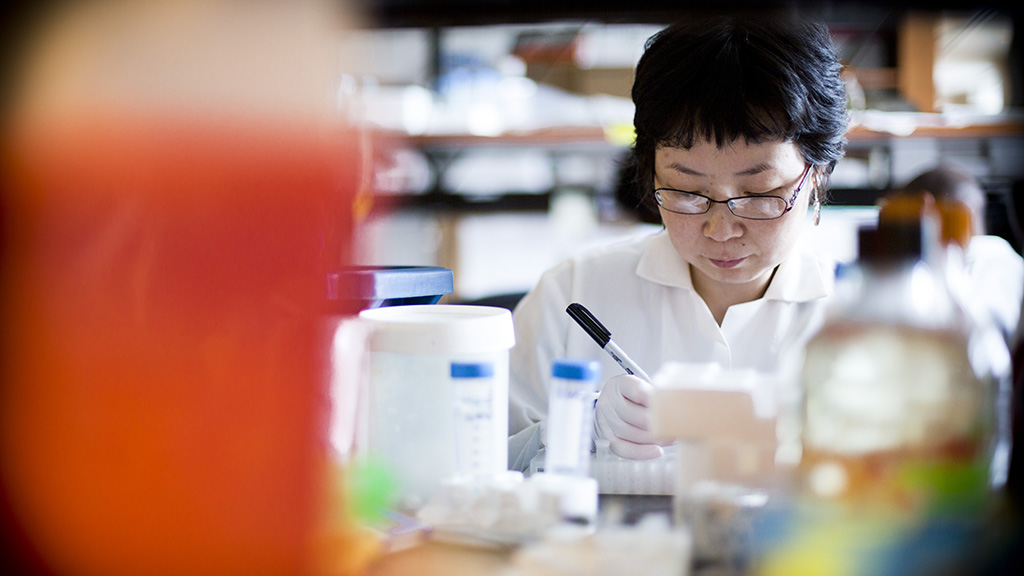Overview
Our ultimate goal is to translate insights gained from the laboratory into paradigm-changing clinical approaches to improve quality of life for patients with cancer.
The genome is constantly exposed to a variety of agents that challenge its integrity. To cope with this challenge, the replication stress response (RSR) and broader DNA damage response (DDR) coordinate diverse DNA repair and cell cycle checkpoint pathways. The RSR and DDR are critical for the prevention of carcinogenesis by acting as a barrier against genome instability and for determining the resistance of cancer to treatments that induce DNA damage and replication blocks. Thus, elucidating how the RSR and DDR function to maintain genome integrity has significant clinical implications.
Areas of Research
1) One specific area of research interest is to define the role of the acetylome, including of the SIRT2 sirtuin deacetylase and tumor suppressor protein, in directing the RSR and DDR to maintain genome integrity, prevent carcinogenesis, and govern cancer treatment resistance.
2) Another major area of research interest is to define the role of DNA end resection and dNTP metabolism by the SAMHD1 HIV-1 restrictase in promoting genome integrity, including in response to DNA double-strand breaks (DSB), and how this may be exploited for improvements in cancer treatment.
3) A third major area of research interest is to elucidate and functionally define the activities of novel components of the RSR and DDR that are critical for maintaining genome integrity and mediating cancer treatment resistance using unbiased genome-wide genetic and proteomic screens and how this may be exploited for improvements in cancer treatment.
Research Funding
Grants currently awarded to the Yu Lab include:
- DOD BCRP BC220744
- NIH/NCI T32 CA275777
- NIH/NCI U54CA274513
- NIH/NCI R01CA178999
- NIH/NCI R01CA254403
Program Membership
As a member of several research and education programs at Emory University, Dr. Yu plays a key role in training future cancer biologists, and in collaborating with colleagues to advance new discoveries in cancer care and prevention.
Graduate Division of Biological and Biomedical Sciences (GDBBS)
Winship Cancer Institute of Emory University
Emory University School of Medicine


